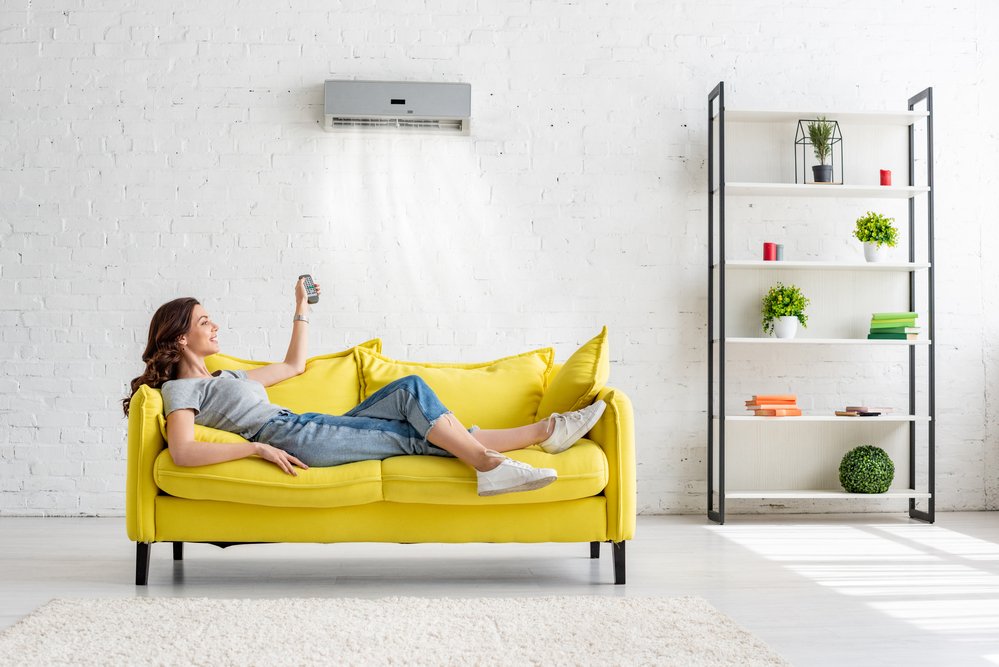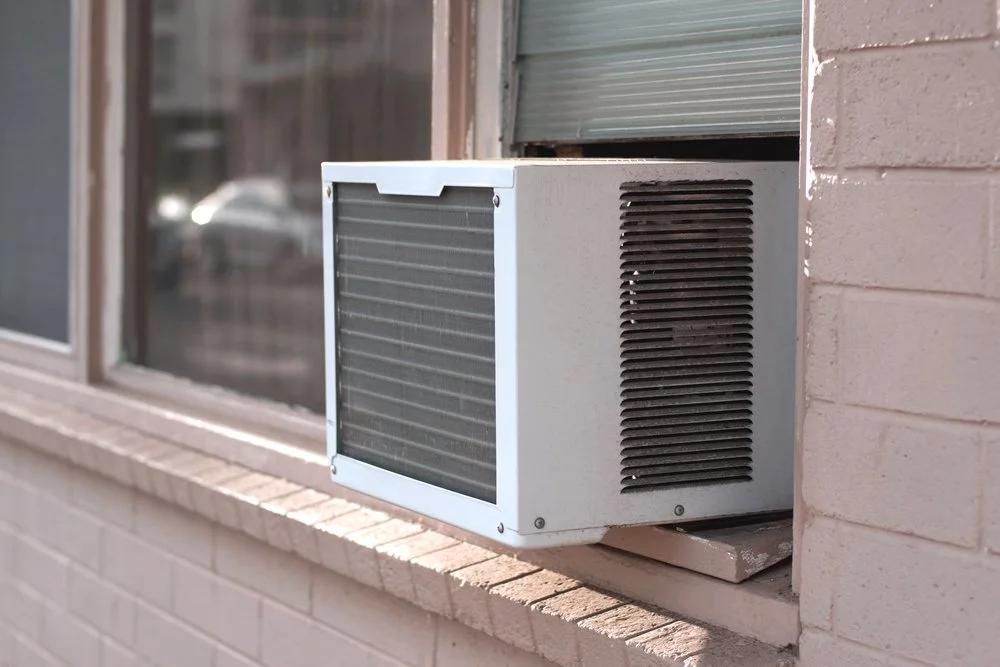HVAC Lifespan: What Is The Life Expectancy Of An HVAC System?
Your HVAC (Heating and Cooling) system is a crucial component of your home or business, responsible for keeping the space comfortable year-round. However, like all mechanical systems, HVAC units have a limited lifespan. Understanding how long your HVAC system will last can help you plan for its eventual replacement and take the necessary steps to extend its life span and optimize its performance.
In this article, we'll take a closer look at the typical life expectancy of various HVAC systems, ranging from window unit ACs to ductless mini-splits, and explore the factors that can impact the longevity of your HVAC system. By the end of this article, you'll be equipped with the knowledge you need to make informed decisions about maintaining or replacing your HVAC system. Let's dive in and explore the world of HVAC lifespan!
How Long Does an HVAC System Last?
On average, an HVAC system can last anywhere from 10 to 25 years, depending on several factors.
Let's explore these factors quickly to understand how they contribute to an HVAC system's lifespan.
Maintenance: Regular HVAC maintenance, such as changing filters, cleaning coils, and checking refrigerant levels, can help extend the life of your HVAC system. Without proper HVAC maintenance, your system may be more prone to breakdowns and may wear out more quickly.
Usage: The more your HVAC system runs, the more wear and tear it will experience, which can shorten its lifespan. High usage levels, such as running your HVAC system 24/7, can cause components to wear out more quickly.
Climate: The climate in which you live can also impact the life expectancy of your HVAC system. In areas with extreme temperatures or high humidity, your system may have to work harder to maintain comfortable temperatures, which can lead to more wear and tear.
Installation: Proper installation is crucial to the lifespan of your HVAC system. An improperly installed system may not work as efficiently or effectively, which can lead to breakdowns and a shorter lifespan.
Quality of Equipment: The quality of the equipment you choose can also impact the lifespan of your HVAC system. High-quality equipment may last longer and require fewer repairs, while lower-quality equipment may need to be replaced more frequently.
By taking steps to maintain your HVAC system, reducing unnecessary usage, and choosing high-quality equipment, you can help extend the life expectancy of your HVAC system and save money on repairs and replacements in the long run.
Also Read: How to Reset Your Air Conditioner After a Power Outage
Typical HVAC Lifespans: How Long Do HVAC Units Last?
Every HVAC system comprises different components, each with its own lifespan that contributes to the system's overall lifespan. Knowing the lifespan of each part can help you determine when it's time to replace or repair your HVAC system and can help you take steps to extend its lifespan. Here's a breakdown of the typical lifespan of various HVAC equipment:
Window Unit AC
Window unit AC typically last between 10 to 15 years. Window unit air conditioners generally are less expensive and easy to install, making them popular for many homeowners. However, they are generally less efficient than other air conditioning units and may require more maintenance over their lifespan.
Quick tips to maximize the lifespan of window unit ac:
Clean or replace the filter regularly
Keep the unit clean and free of debris
Use a programmable thermostat to reduce usage when you're not home
Residential-Single Whole-Home Unit
The lifespan of residential single-home units is typically between 15 to 20 years. These units are more expensive than window units but more efficient and powerful. These units are designed to cool or heat an entire home and can be very energy efficient if adequately maintained.
Quick tips to maximize the lifespan of single home unit ac:
Schedule annual maintenance with a professional HVAC technician
Keep the outdoor unit clean and free of debris
Heat Pumps
On average, the lifespan of a heat pump is typically between 10 to 15 years, but it can last up to 20 to 25 years if they are well-maintained and in a well-insulated home. Heat pumps are an excellent option for heating and cooling and are known for their energy efficiency.
Quick tips to maximize the lifespan of heat pumps:
Keep the outdoor unit clean and free of debris
Check and clean the air filters monthly
Schedule annual maintenance with a professional HVAC technician
Steam Boilers
Steam boilers are the heating system that uses steam to heat a building. The lifespan of a steam boiler can vary greatly depending on the type of boiler, but they typically last between 15 to 35 years. Steam boilers are commonly used for heating large buildings and can be very efficient when properly maintained.
Quick tips to maximize the lifespan of steam boilers:
Regularly check and adjust the water level in the boiler
Schedule annual maintenance with a professional HVAC technician
Insulate the pipes to prevent heat loss
Furnaces
The lifespan of a furnace can also vary depending on the type of fuel it uses. Gas furnaces typically last between 20-30 years, while oil furnaces usually last between 10 to 15 years. Furnaces are essential to many HVAC systems, as they provide heating during cold weather.
Quick tips to maximize the lifespan of furnaces:
Schedule annual maintenance with a professional HVAC technician
Change air filters regularly
Keep the area around the furnace clean and free of debris
Radiant Heaters
The lifespan of a radiant heater typically ranges from 15 to 20 years, depending on the type of system. Radiant heating systems are known for their energy efficiency and can be a good option for heating specific home areas.
Quick tips to maximize the lifespan of radiant heaters:
Clean or replace air filters regularly
Schedule annual maintenance with a professional HVAC technician
Keep the area around the heater clean and free of debris
Thermostats
The lifespan of a thermostat is typically about 10 years. While thermostats may not seem like a significant component of an HVAC system, they are crucial in regulating your system's temperature and energy efficiency.
Quick tips to maximize the lifespan of thermostats:
Keep the thermostat away from heat sources and direct sunlight
Change the batteries regularly
Upgrade to a programmable thermostat to better control energy usage
Ductless Mini-Splits
The lifespan of a ductless mini-split can range from 10 to 30 years, depending on the model and how well it's maintained. Ductless mini-splits are a popular option for heating and cooling individual rooms or areas of a home and can be very efficient if properly installed and maintained.
Quick tips to maximize the lifespan of ductless mini-splits:
Keep the outdoor unit clean and free of debris
Change air filters regularly
Schedule annual maintenance with a professional HVAC technician
By understanding the lifespan and importance of each HVAC component, you can take steps to maintain your system and extend its overall lifespan properly.
Also Read: What is Plenum in HVAC?
When to Replace Your HVAC System: 5 Signs to Look For
Even with regular maintenance and proper care, HVAC systems won't last forever. As HVAC units end their lifespan, they may show signs of wear and tear, decreased efficiency, and increased repair costs. At some point, it will make more sense to replace the system rather than continue to repair it. Here are 5 signs that it may be time to replace or repair your HVAC system:
Age: If your HVAC system is over 10-15 years old, it may be time to consider replacing it, especially if it's experiencing other issues. As HVAC systems age, they tend to lose efficiency, and repairs become more frequent and costly.
High Energy Bills: Are you noticing an increase in your energy bills? This could indicate that your HVAC system is no longer running efficiently. As HVAC systems age, they lose efficiency, and this can cause an increase in energy consumption and associated costs. If you've noticed a sudden spike in your energy bills, it may be time to consider a replacement.
Frequent Repairs: If you find yourself calling your HVAC technician more often than not, it may be more cost-effective in the long run to replace the system rather than continuing to repair it. Frequent repairs can add up quickly, and if your system is aging, it may be nearing the end of its lifespan, making a replacement a more sensible option.
Uneven Heating or Cooling: If some rooms in your home are significantly cooler or warmer than others, it may be a sign that your HVAC system is no longer functioning as it should. This could be due to various issues, including an aging system or unit that needs replacement.
Strange Noises or Smells: If you hear strange noises or detect unusual smells from your HVAC system, it could indicate a severe problem. HVAC systems are designed to operate quietly and efficiently, so any unusual noises or smells should be addressed immediately. If your system is aging, these issues may indicate that it's time for a replacement.
Time to Wrap Up
As a homeowner or business owner, now you know how important it is to understand the lifespan of your HVAC system and its individual components. By knowing each part's expected lifespan and watching for warning signs of trouble, you can avoid unexpected breakdowns and costly repairs.
Remember that regular preventive maintenance is critical to maximizing the lifespan of your HVAC system. By scheduling routine tune-ups and inspections with GS Mechanical, you can catch minor problems before they become big ones and extend the life of your system while enjoying reliable, efficient performance.
When it's time to replace or maintain your HVAC system, be sure to work with a qualified HVAC contractor like GS Mechanical. Our team of experts can help you choose the right system for your needs, ensure proper installation, and provide ongoing maintenance and repair services to keep your system running smoothly for years to come.
Contact GS Mechanical today to schedule your HVAC service or installation appointment and enjoy peace of mind knowing that your system is in good hands.










